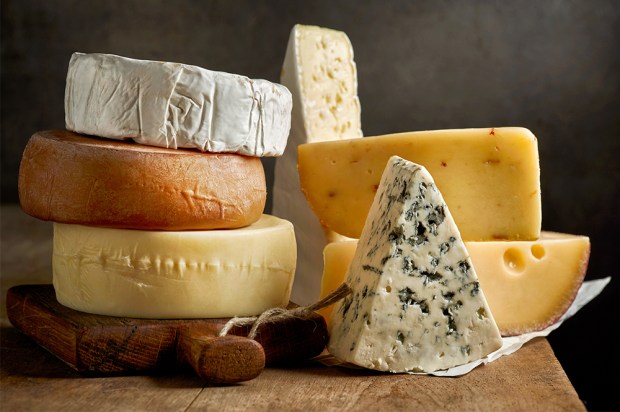There is a ‘pervasive presence of Chinese military-linked conglomerates and universities in the sponsorship of high-technology research centres in many leading UK universities’. When the think tank Civitas recently revealed this, Cambridge University denounced the report as misinformation and pushed Civitas to qualify it. Thus, when Civitas had referred to Cambridge’s Memorandum of Understanding (MoU) with China’s National University of Defence Technology (NUDT), Cambridge wanted it added that the MoU had been ‘signed in the wake of the UK… government’s encouragement to create a “golden decade” for the UK-China relationship. That MoU produced no research, no collaborations, no funding and has been expired for three years’. Why, then, was it signed, one wonders? A grimly amusing link is between a bye-fellow of Gonville and Caius College who is also ‘a Distinguished Professor and a 1,000-talent plan awardee’ at NUDT and a NUDT academic called Xienwen Ran. They have done research work together. Dr Ran is billed at NUDT as a ‘doctor of theology’, but his theology seems highly weaponised. In 2019 he published (not with the fellow of Caius) A method to optimize the electron spectrum for simulating thermo-mechanical response to x-ray radiation 6 (‘The X-ray pulse originating from high altitude nuclear detonation (HAND) is mainly soft X-ray and its intensity is high enough [to] lead to severe thermo-mechanical deformation of unpenetrated material…’).
When we finally re-emerge from Covid, will we kiss one another socially? When I was a boy, whom to kiss was quite a complicated question. Many older people virtually never kissed anyone, and even in my generation some were much more reticent or choosy than others. Then — from the 1980s, I would say — it became usual to kiss almost everyone of the opposite sex at parties if you had met them before and even — by the 21st century — if you hadn’t. Before Covid, this assumed intimacy was already waning, perhaps because of #MeToo concerns. After Covid, refusing a kiss might seem standoffish, but offering one might seem positively threatening.
The Society of Antiquaries, which received its royal charter in 1751, is, as its name suggests, a learned body. So you would expect it to do what it says on the parchment. Sure enough, recent attractions include lectures on ‘Penywyrlod and Gwernvale in their early Neolithic context’ and ‘Anglo-Saxon hydraulic engineering in the Fens’. But stop. Here is its forthcoming conference: ‘Intertwined Histories: the Legacies of Colonialism and Empire’, organised not by antiquaries, but by the society’s Diversity and Equality Working Group and Communications Manager. Like old statues, old statutes must come down. Last year, the society changed its statutes to interest itself in ‘equality of opportunity and access’ regardless of gender reassignment, civil partnership, pregnancy etc. The Diversity and Equality Working Group ignores anything antiquarian, urging engagement ‘with contemporary audiences, values and society’. Separately, the society is fighting to keep down the rent on its premises in Burlington House W1 and threatening to sell its treasures to cover the cost. Wouldn’t it be more in keeping with contemporary values if those treasures, so often acquired by plunder, colonialism and oppression, were restored to their original owners, rather than sold to keep the society in its current elitist premises?
Visiting Jackson, Mississippi, in the 1980s, I found myself warmly welcomed (I cannot remember why) by a lively group of Catholic feminists. Their heroine was Mother Cornelia Connelly. I was embarrassed not to have heard of her since she did her greatest work near us in Sussex. Hers is quite a story. In 1831, aged 22, she married Pierce Connelly, an Episcopalian minister, in her native Philadelphia. Both later converted to Catholicism. Pierce wanted to become a priest, which was difficult, what with a wife and five children. The couple eventually signed a perpetual deed of separation so he could be ordained. While still looking after her younger children, Cornelia became a nun. Coming to England, she established a teaching order, the Society of the Holy Child Jesus. After a bit, however, Pierce got fed up, left the Catholic church and wanted her back. She said no. He brought a court case, Connelly vs Connelly, to restore his conjugal rights. It continued for years, in blazing publicity. He lost. Mother Cornelia founded numerous religious houses, and two orphanages, finally establishing the mother-house at St Leonard’s Mayfield, where she rebuilt the church of a former summer palace of the Archbishops of Canterbury, setting up what remains a well-known Catholic girls’ school. She was intellectual, open-minded and maternal, adopting a broad curriculum and dressing her girls in red because she preferred bright colours. She understood teenagers: ‘You mustn’t punish everything.’ For all these reasons, including her defeat of her husband, those Mississippi Catholic feminists loved her. She was made ‘Venerable’ in 1991. Her formidable woman-power may be rewarded by canonisation. Perhaps because of possible sainthood, something strange has happened. Cornelia’s now-worldwide order wants her bones — or rather, macabrely, some of them — to be exhumed from Mayfield, where she expressly wished to be buried, and re-interred in Philadelphia’s Catholic cathedral. It was announced, without consultation, that ‘Cornelia is coming home’. Planning objections to the process involved here in Britain are due by 4 March. Belatedly apprised, the school’s former pupils (‘Cornelians’) are furious: 272 written objections have poured in. I particularly like this one: ‘I do hope the authorities take a lesson from Solomon and decide that those with the truest intentions would never wish to see any child of god, whether dead or alive, divided into two.’
How can the cliché ‘roadmap’ assist our understanding of how to get out of Covid? To make a roadmap, one must first have the roads. Even now, the map is more of the ‘here be dragons’ variety.
Got something to add? Join the discussion and comment below.
Get 10 issues for just $10
Subscribe to The Spectator Australia today for the next 10 magazine issues, plus full online access, for just $10.
You might disagree with half of it, but you’ll enjoy reading all of it. Try your first month for free, then just $2 a week for the remainder of your first year.















Comments
Don't miss out
Join the conversation with other Spectator Australia readers. Subscribe to leave a comment.
SUBSCRIBEAlready a subscriber? Log in